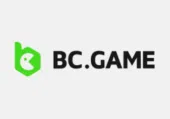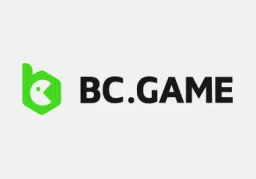How to Avoid iGaming Affiliate Fraud as an Operator

As affiliate marketing has taken off in popularity, it is vital for iGaming operators to educate themselves on the risks of fraudulent affiliates.
Affiliate Marketing has solidified itself as the most popular marketing method used by iGaming operators all around the world. There are many reasons why affiliate marketing is so popular in the iGaming space, such as the pay-as-you-go nature of various commission models, which allows even the smallest of operators to enjoy high-quality promotional campaigns, along with its ability to be mostly outsourced via an iGaming affiliate management service, which offers operators limitless affiliate network expansion opportunities.
However, affiliate marketing is not perfect and it has a few downsides. One of its most sizable disadvantages compared to traditional marketing forms is its susceptibility to different forms of affiliate fraud. It is much easier for malicious affiliates to exploit their partners for illicit monetary gains in iGaming affiliate marketing. Fortunately, there are a few ways gambling firms can protect themselves from such threats. In this article, we will explore the topic of iGaming affiliate fraud, how fraudulent affiliates take advantage of unsuspecting operators, and will take a look at a few ways to spot and protect your gambling business from such threats.
Table of Contents
What is iGaming affiliate fraud?
iGaming affiliate fraud is the practice of iGaming affiliates spoofing their performance metrics in a way that shows better performance to their operator partners than delivered in pursuit of illicit monetary gain. This sort of exploitation can be done in a number of ways depending on the contract’s commission model, such as by supplying spoofed or bot traffic, and will usually result in the iGaming operator paying more for less and worse quality traffic. However, the practice can result in many other damaging side effects, which we will cover next.
The negative effects of iGaming affiliate fraud
iGaming affiliate fraud can have a number of negative consequences for operators, with one of the most obvious ones being a worse-performing promotional campaign for the same cost. This can take the form of either lower quality or volume of traffic, as well as completely irrelevant traffic.
While receiving a lower volume of traffic may not cause any long-term effects for the gambling business, irrelevant traffic driven by fraudulent iGaming affiliates has a high probability of greatly increasing the bounce rate of the operator’s website. This will negatively affect the website’s search engine optimization strategy and will subsequently hurt the operator’s organic performance, leading to a further decrease in the company’s volume of traffic.

Operators can also face other troubles, such as sizable chargeback fees if a fraudulent iGaming affiliate utilizes stolen IDs and credit cards to artificially inflate their performance figures in cases with revenue share commission models.
Subpar traffic driven by fraudulent iGaming affiliates will also make assessing an operator’s real performance much harder. Cases, where affiliates supply redirected or spoofed traffic, may even affect the operator’s reputation, as redirected users may view the page they wrongfully ended up on as fraudulent. Low-quality traffic can also have other negative side effects as well, as high-quality casino traffic is key for an operator’s image, client retention, and, ultimately, revenue generation.
Furthermore, certain types of iGaming affiliate fraud can even hurt legitimate affiliate businesses, vastly expanding the negative impacts of these companies. Fraudulent affiliates can accomplish this by cloning the websites or impersonating the social media accounts of well-known legitimate affiliate businesses that have expansive audiences, effectively stealing the commissions from these legitimate iGaming affiliate brands. Because of this, it is vital for operators to be able to effectively counter iGaming affiliate fraud, especially if they aim to maintain their reputations.
The first step to accomplishing this is knowing all the various forms of iGaming affiliate fraud that exist in the industry. Let’s explore the different types of iGaming fraud up next, including the ones that have the potential to affect an operator’s legitimate affiliates.
The types of iGaming affiliate fraud
There are many types of iGaming affiliate fraud, with some of them being very simple to execute and spot, while others are much more elaborate schemes that increase casino traffic volumes gradually to remain undiscovered for prolonged periods. Let’s take a look at some of them.
Bot Traffic
Driving bot traffic is one of the most common ways for fraudulent iGaming affiliates to inflate their performance metrics. This can be done in many ways, including in a very quick and haphazard manner, or with careful consideration and planning. The former will involve utilizing bot farms to purchase the desired traffic volumes, however, this can be easily detected and countered in a timely fashion, as a sudden spike in an affiliate’s traffic is an immediate red flag. Additionally, many bots and click farms will have low-quality traffic originating from a single physical, or in some cases IP address, making it even easier to detect. On the other hand, more savvy fraudulent iGaming affiliates may take many factors into account to make their fake traffic volumes look legitimate, such as by increasing volumes gradually and setting up bot accounts manually through different IP addresses and even devices.
However, bot traffic alone cannot be utilized to boost a fraudulent affiliate’s earnings, although it is an excellent indicator of suspicious activity. Most iGaming operators will utilize a CPA, revenue share, or hybrid commission model, which require directed players to deposit funds and start playing for the affiliate to start earning. This is where our next topic of discussion will come into play, as fraudulent affiliates utilize bot traffic in conjunction with stolen information to inflate their performance figures.
Stolen IDs/Credit Cards
Used in conjunction with our last point of discussion, stolen credit cards and IDs are usually used to inflate the numbers of sales and sign-ups. The process is very similar to using bot traffic to increase impression and click statistics, although it’s much more involved and much riskier. This method can also affect operators with revenue share contracts, as stolen bank cards can be used by fraudulent iGaming affiliates to make deposits and even place bets. This technique can lead to sizable chargeback fees for affected operators, causing even more financial harm.
Redirected/Spoofed Traffic
This one is pretty self-explanatory, as fraudulent iGaming affiliates can direct irrelevant traffic through unrelated sources to their operator partners. This will cause the redirected website visitors to immediately click away, as they most likely had no intention of visiting that page. In turn, this will result in affected operators getting worse bounce rates for their websites, which means they will have a disproportionally high rate of single-page sessions. In contrast to the other methods we discussed, this one will hurt the fraudulent iGaming affiliate as well, which means that there will likely be fewer affiliates utilizing it.
Cookie Stuffing
Cookie stuffing is one of the most widely-used forms of affiliate fraud, as it is estimated that over half of all fraudulent affiliates use this method to inflate their statistics. Cookie stuffing works by generating numerous illegitimate browser cookies, sometimes hundreds of them, with the aim being that the visitor will complete an eligible transaction on a partner’s website sometime later. Fraudulent affiliates using this method can generate cookies for all of the operators and affiliate programs they work with, which is one of the reasons why it is the most widespread form of affiliate scam. Unlike the other forms we discussed previously, cookie stuffing can be detrimental to other affiliate marketers in addition to operators, as illegitimate cookies can override legitimate ones generated by other websites.
Typo Squatting/URL Hijacking
Fraudulent iGaming affiliates can often purchase website domains that are quite similar to that of their operator partners, often differing by only a few characters or less, to redirect visitors to the original website of their associates. In cases like these, fraudulent affiliates did not drive any new traffic to the operator’s website, and thus should not be getting rewarded for the traffic of misspelled websites. Additionally, many fraudulent iGaming affiliates pay large amounts of money to purchase these domains, often even higher than what the operator would be willing to pay to protect their brand from malicious actors.
Website Cloning
Website cloning is the practice of fraudulent affiliates cloning the websites of their rivaling iGaming affiliates, effectively directly stealing players and revenue from legitimate websites. This is usually done in conjunction with our previously discussed iGaming affiliate fraud method, as these malicious affiliates will acquire domains that are very similar to that of a specific successful affiliate in hopes of capturing readers who made spelling errors when attempting to visit the targeted website. While this type of fraud won’t directly hurt iGaming operators, letting these fraudulent affiliates get away with this practice can hurt their reputations.
Using Computer Malware
Malware use in iGaming affiliate fraud can be done in two ways. The first one involves the use of malware programs to replace the affiliate links of other advertising firms with ones that link back to the fraudulent affiliate. This can effectively steal commissions from legitimate iGaming affiliates, just like the last technique we discussed, and will likely have minimal impact on the operator, as they will still get legitimate traffic. The other way fraudulent iGaming affiliates use malware involves displaying the operator’s website, with the fraudulent affiliate’s link, without the affected user’s input. This creates relatively low-quality and high-volume traffic, however, with a limited application, it can look legitimate enough to be used for a while, especially with a commission model like CPA. However, if the malware program does anything else nefarious on an affected person’s computer, it could greatly affect the reputation of the targeted operator. If the malware deployed by a fraudulent iGaming affiliate steals personal data or harms the affected user in any way in addition to directing them to the operator’s website, they could in some situations believe that the gambling website was the one responsible for the attack.
Other types of iGaming fraud
While iGaming affiliate fraud takes many different forms, operators often need to be wary of and prevent iGaming fraud that doesn’t involve their marketing partners. Let’s briefly explore these other types of iGaming fraud.
Bonus abuse
One of the most common types of iGaming fraud is bonus abuse. This is where a player will create multiple playing accounts at a particular online casino only to take advantage of bonuses. Thankfully, this type of iGaming fraud is relatively straightforward to detect and prevent if the operator has implemented rigorous identity verification solutions. However, gambling firms offering more private experiences, such as through the use of cryptocurrencies, may need to offer less attractive bonuses to protect themselves from bonus abusers. Check out our guide on casino bonuses to learn more.
Chargeback fraud
Chargeback fraud is another popular type of iGaming payment fraud through which malevolent players can negatively affect gambling operators. This type of iGaming fraud usually involves a player depositing funds, using it all to gamble in a short amount of time, and then requesting a refund from their financial institution using a false reason for the claim. Fortunately, operators that keep records of the activity of their players should be able to have enough evidence to dispute fraudulent chargebacks successfully.
How to spot iGaming affiliate fraud
Now that we looked at some of the types of iGaming affiliate fraud, let’s explore how you can detect affiliate fraud to protect your business from fraudulent iGaming affiliates.
Enhance your trackers
The number one thing every iGaming business utilizing affiliate marketing services should do is implement forms of identifying traffic sources. After all, the knowledge of which affiliate was responsible for which portion of the company’s traffic is vital for the iGaming affiliate marketing system to work. However, many companies, implement very basic forms of tracking systems, which is why enhancing them is the first form of iGaming affiliate fraud detection we’re going to look at.
Sudden jumps or drops in a number of an operator’s statistics, such as clicks, impressions, conversions, chargebacks, and bounce rate, are excellent indicators for detecting affiliate fraud. Having a robust set of trackers that can deliver detailed information on the performance of a gambling firm’s affiliate partners is vital for operators to be able to utilize this technique.
One of the best forms of improving traffic trackers is by using browser and device fingerprinting. These systems will make using bots quite a lot more difficult, as obtaining different IP addresses with a simple free VPN service will no longer be enough to fool an iGaming operator’s website into thinking that it got visits from multiple different locations. While they can get somewhat defeated by blocking all website cookies and setting up specifically tailored virtual machines to get an unidentifiable fingerprint, fraudulent affiliates will not be able to completely bypass these systems easily.
Log and analyze traffic data
Unlike our previous point, logging and analyzing traffic data is not a preventative measure, however, it is still quite important. By logging as many details about the traffic brought by their gambling affiliate partners, operators can carefully examine any changes and detect patterns of iGaming affiliate fraud. Many data points, such as sudden spikes in chargebacks or the website’s bounce rate from traffic brought by a specific affiliate, can be causes of concern, especially depending on their magnitude.
Implement rigorous KYC measures
Implementing top-notch Know Your Customer systems is paramount for industries dealing with higher-than-average levels of risk, with the iGaming one being a prime example of such a sector. A set of high-quality KYC guidelines will help operators immensely with affiliate fraud involving the use of stolen assets, as malicious companies will have a hard time passing several common identity checks without an immense amount of effort. Additionally, as discussed earlier, the use of stolen assets is quite prevalent among fraudulent affiliates, which means that leading KYC solutions can be very effective at identifying, and even preventing iGaming affiliate fraud. Speaking of preventing fraud, let’s take a look at a few ways operators can avoid iGaming fraud altogether.
How to avoid iGaming fraud
While throughout this article we explored ways to detect and prevent affiliate fraud in iGaming, the best way of countering them is to avoid these frauds in the first place. One of the best ways of making sure that your business is not at risk of iGaming fraud is to work with only reputable iGaming affiliates. Companies that have established names for themselves are less likely to risk damaging their reputations for a momentary gain. However, finding these types of iGaming affiliates can sometimes be tricky. Let’s take a look at how you can find top casino affiliates and ensure the legitimacy of your existing partners up next.
1. Ask around about prospecting partners
One effective approach to verifying the credibility of iGaming affiliates is to ask those who have previous working experiences with them. Depending on the size of the company, a few subpar cases may not be an immediate red flag, especially if, for example, the affiliate delivered their promised traffic and was slow to respond at times. However, a large number of complaints about its delivered traffic or major and consistent delays in communication should be a cause for concern.
2. Search for scam allegations on the internet
Many operators post their bad experiences with certain iGaming affiliates on various forums and discussion websites on the internet, which is a great tool in determining if an affiliate is fraudulent or not. Many keywords such as “scam” and “fraud” can be used in conjunction with the company’s name on popular search engines, such as Google, for this purpose. Search queries with many relevant results from different operators often signify a troublesome iGaming affiliate that you should stay away from.
3. Check the affiliate’s website and traffic

This one is unlikely to be the sole factor in determining the legitimacy of an iGaming affiliate, however, it is a major factor that can help operators in the process. Checking the domain authority and website quality, as well as assessing the quality of the delivered traffic are great ways to identify and stay away from fraudulent or subpar affiliates.
4. Search for iGaming affiliates on established directories
For iGaming operators looking to expand their affiliate networks, various established directory websites should be the first place to visit. Many of these companies, such as AffPapa’s directory, have vast lists of reputable affiliates and are quick to remove any fraudulent firms.
5. Make use of affiliate management services or affiliate networks
An excellent way of ensuring that your gambling business never has to deal with fraudulent affiliates is to utilize the services of affiliate networks or affiliate management solutions that offer iGaming fraud protection. These services will often integrate robust fraud detection software and carry out extensive risk assessments to offer an integrated fraud protection solution to their clients, allowing operators to focus their efforts on their core businesses.
Additionally, many high-quality affiliate management services partner with reputable and established affiliates to further ensure that they and their clients are protected from fraudulent iGaming affiliates. However, it is important to note that not all affiliate networks and management services will offer iGaming fraud protections, which means it is important to conduct extensive research before selecting a particular solution for your business.
Conclusion
To summarize, iGaming fraud is a phenomenon that is becoming more widespread as the industry continues to grow. Because of this, it is important to learn the most common types of iGaming fraud, and most importantly, how industry businesses can protect themselves from fraudulent iGaming affiliates and other types of malicious actors.
























